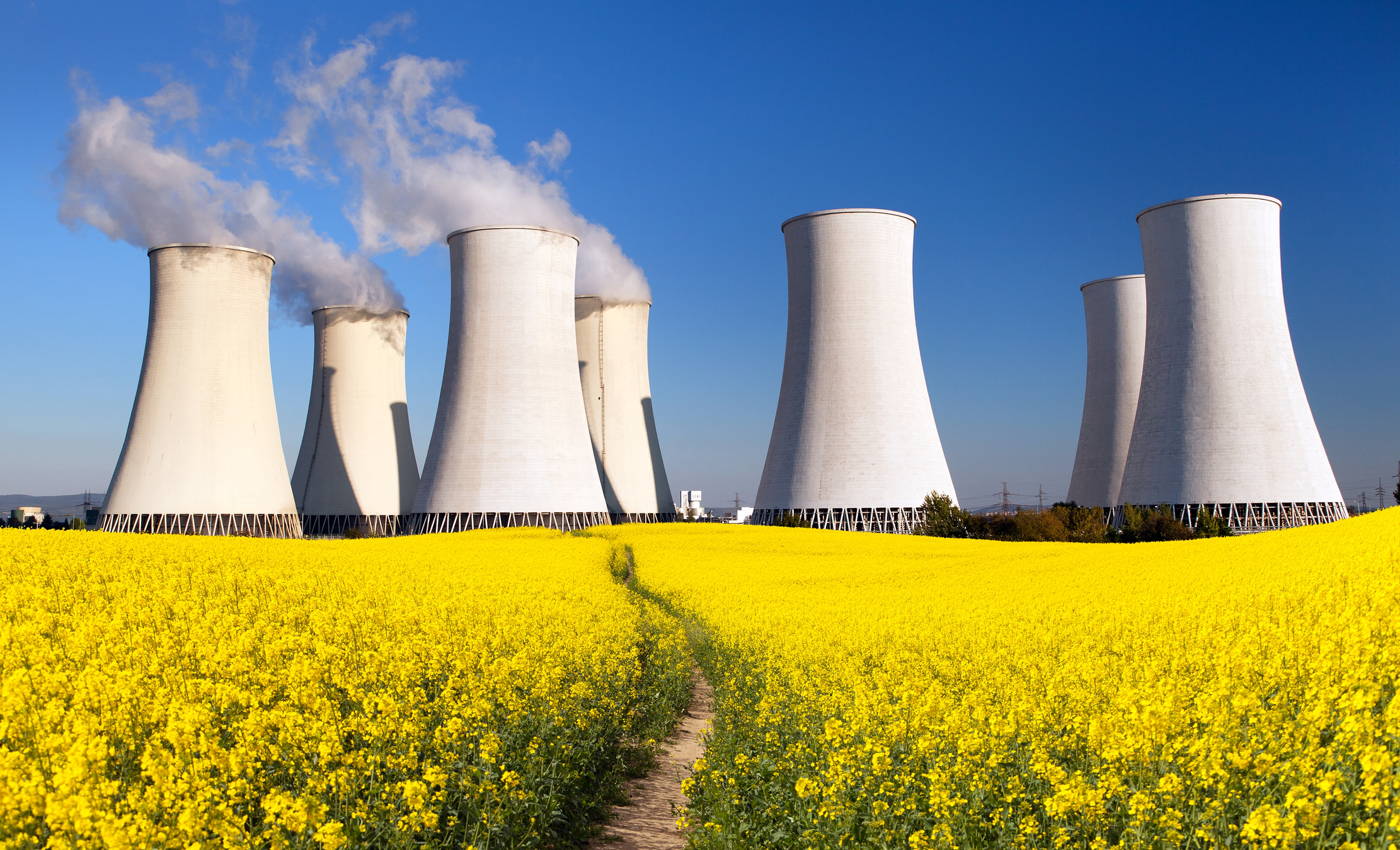The nuclear necessity
The world can't reach emissions goals with wind and solar alone


A free daily email with the biggest news stories of the day – and the best features from TheWeek.com
You are now subscribed
Your newsletter sign-up was successful
This is the editor’s letter in the current issue of The Week magazine.
Many Americans, including me, had our views of nuclear power strongly shaped by the 1979 film The China Syndrome. This polemic's alarming message was amplified when the Three Mile Island nuclear accident occurred just days after its release. Splitting uranium atoms to generate electricity had once been touted as a miraculous solution to the world's energy needs, but by the late 1970s, most Americans had come to see nuclear power as a radioactive Trojan horse, carrying the sinister potential for core meltdowns and our own destruction. This, of course, was before we realized that burning coal, oil, and natural gas was creating a different, slow-motion disaster, triggering a greenhouse effect that is now visibly altering global climate. The dire need to cut those emissions dramatically has led some scientists — and some environmentalists — to a surprising change of heart: If there is to be any realistic hope of limiting climate change, we may need to build new nuclear power plants to supplement solar and wind.
The real world often compels us to choose the lesser evil. Wind and solar, which now supply just 9 percent of U.S. electricity, can be scaled up over time, but few scientists think renewables will provide most or all of the energy needs of the planet's 7.6 billion people by 2030 or 2040. "Nuclear power paves the only viable path forward on climate change," says former NASA scientist James Hansen, who first sounded the alarm on global warming 30 years ago. Nuclear is expensive and not without risks, but the fourth generation of nuclear plants is engineered to prevent meltdowns and burn much of its own waste. Pollution from burning fossil fuels, meanwhile, quietly kills millions of people worldwide every year. Unchecked climate change will be even more catastrophic. If we want to power our devices, cars, and homes, we will have to accept trade-offs. Lunch, alas, is not free.
The Week
Escape your echo chamber. Get the facts behind the news, plus analysis from multiple perspectives.

Sign up for The Week's Free Newsletters
From our morning news briefing to a weekly Good News Newsletter, get the best of The Week delivered directly to your inbox.
From our morning news briefing to a weekly Good News Newsletter, get the best of The Week delivered directly to your inbox.
A free daily email with the biggest news stories of the day – and the best features from TheWeek.com
William Falk is editor-in-chief of The Week, and has held that role since the magazine's first issue in 2001. He has previously been a reporter, columnist, and editor at the Gannett Westchester Newspapers and at Newsday, where he was part of two reporting teams that won Pulitzer Prizes.
-
 James Van Der Beek obituary: fresh-faced Dawson’s Creek star
James Van Der Beek obituary: fresh-faced Dawson’s Creek starIn The Spotlight Van Der Beek fronted one of the most successful teen dramas of the 90s – but his Dawson fame proved a double-edged sword
-
 Is Andrew’s arrest the end for the monarchy?
Is Andrew’s arrest the end for the monarchy?Today's Big Question The King has distanced the Royal Family from his disgraced brother but a ‘fit of revolutionary disgust’ could still wipe them out
-
 Quiz of The Week: 14 – 20 February
Quiz of The Week: 14 – 20 FebruaryQuiz Have you been paying attention to The Week’s news?
-
 Epstein files topple law CEO, roil UK government
Epstein files topple law CEO, roil UK governmentSpeed Read Peter Mandelson, Britain’s former ambassador to the US, is caught up in the scandal
-
 Iran and US prepare to meet after skirmishes
Iran and US prepare to meet after skirmishesSpeed Read The incident comes amid heightened tensions in the Middle East
-
 Israel retrieves final hostage’s body from Gaza
Israel retrieves final hostage’s body from GazaSpeed Read The 24-year-old police officer was killed during the initial Hamas attack
-
 China’s Xi targets top general in growing purge
China’s Xi targets top general in growing purgeSpeed Read Zhang Youxia is being investigated over ‘grave violations’ of the law
-
 Panama and Canada are negotiating over a crucial copper mine
Panama and Canada are negotiating over a crucial copper mineIn the Spotlight Panama is set to make a final decision on the mine this summer
-
 Why Greenland’s natural resources are nearly impossible to mine
Why Greenland’s natural resources are nearly impossible to mineThe Explainer The country’s natural landscape makes the task extremely difficult
-
 Iran cuts internet as protests escalate
Iran cuts internet as protests escalateSpeed Reada Government buildings across the country have been set on fire
-
 US nabs ‘shadow’ tanker claimed by Russia
US nabs ‘shadow’ tanker claimed by RussiaSpeed Read The ship was one of two vessels seized by the US military
